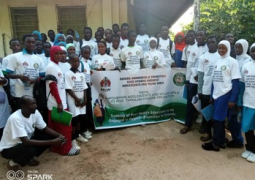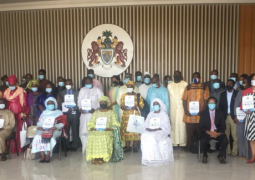
Held at Ocean Bay Hotel, Cape Point in Bakau, the event was coordinated by the Civil Service Reform and Planning Unit (CSRPU) under the Ministry of Public Service (MoPS).
The forum sought to facilitate robust discussions and review of the inventory report, focusing on matters pertaining to data inventory and its potential use and benefits, as well as the data governance model and civil technology tool recommendations.
The project was also aimed at enhancing the efficiency, transparency, and responsiveness of public services by improving data governance and modernising administrative processes across three key ministries namely: Ministry of Higher Education, Research, Science & Technology, Ministry of Basic and Secondary Education and Ministry of Health.
The Data Inventory Project is a cornerstone initiative within the broader Public Administration Modernization Project (PAMP), a collaboration between the Government of The Gambia and the World Bank (WB).
Moreover, the objective of this data inventory project is to systematically catalogue and assess the data assets within the selected ministries mentioned above. The project aims to identify gaps, redundancies, and opportunities for optimisation in data management practices.
Declaring the validation open, Pateh Jah, Permanent Secretary at the Ministry of Public Service, said the workshop was to help participants have understanding of Data that were collected from the ministries, how it is used and its accessibility.
“We collected data at different levels, but some data are not shared for reference purpose. Not available for others to make best use of them. There is no maximum impact of how we should use our data. There should be collaboration in collecting data from government institutions,” PS Jah explained.
Mr. Njaga Gaye director of Policy Analysis Unit under the Ministry of Public Service, described the report as timely and comprehensive, further promising that they will make sure all relevant data is known.





